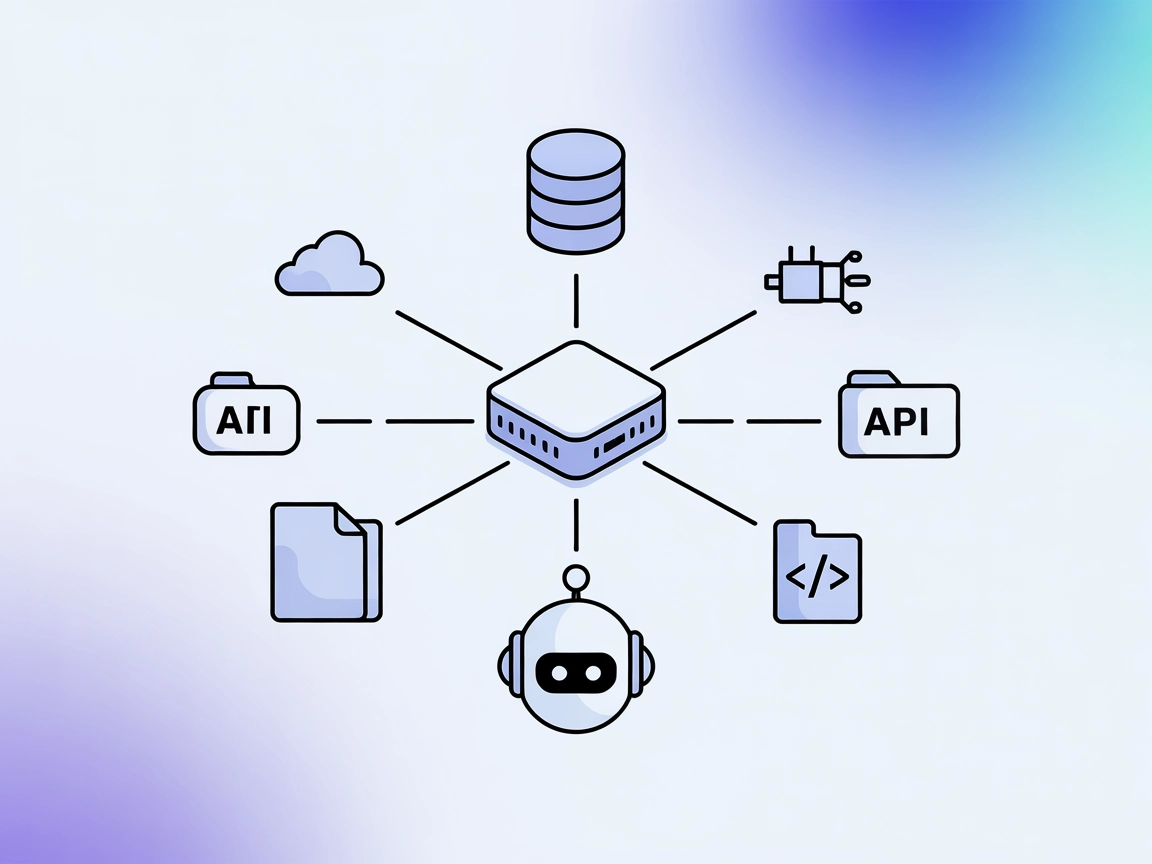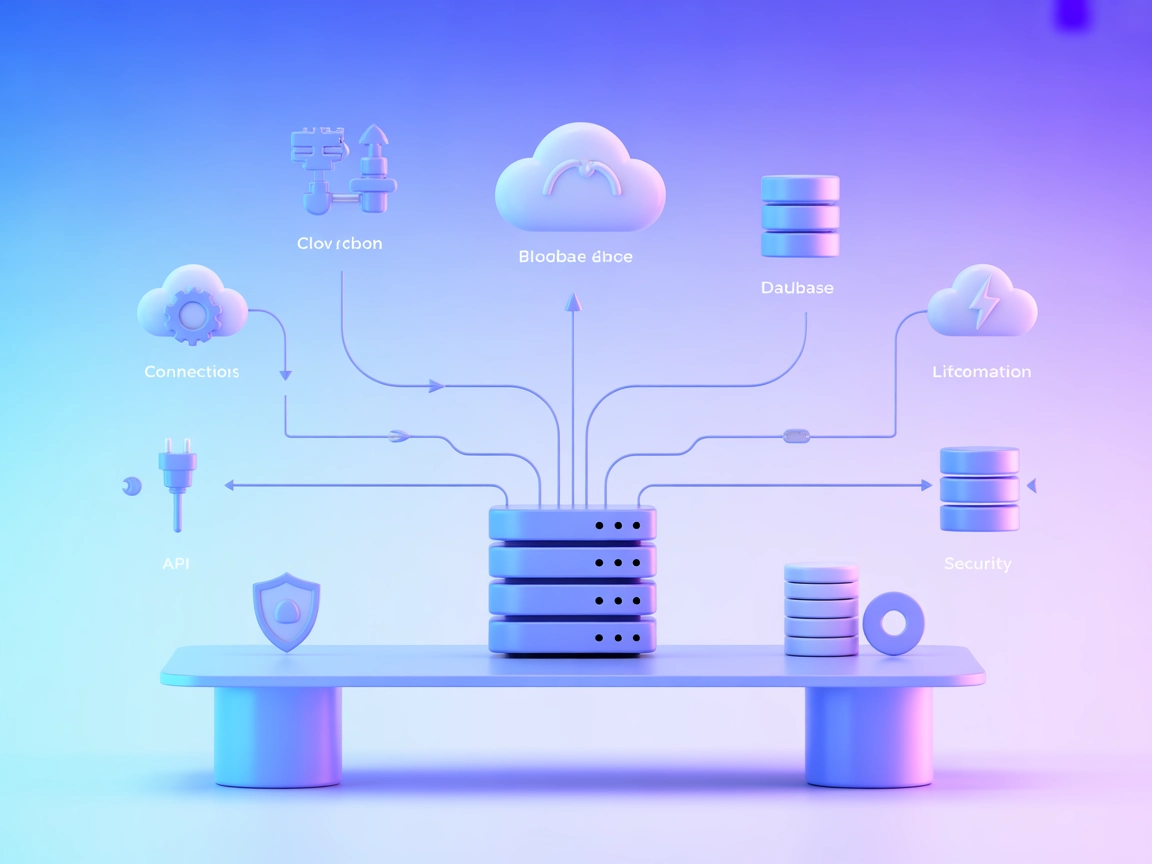
UnifAI MCP Server
The UnifAI MCP Server connects AI assistants with external data sources, APIs, and services, enabling advanced automation and workflow orchestration within the ...

UNS-MCP is a specialized MCP server that empowers AI assistants and developers to automate data workflows, manage connectors, and orchestrate complex ETL pipelines through the Unstructured API.
FlowHunt provides an additional security layer between your internal systems and AI tools, giving you granular control over which tools are accessible from your MCP servers. MCP servers hosted in our infrastructure can be seamlessly integrated with FlowHunt's chatbot as well as popular AI platforms like ChatGPT, Claude, and various AI editors.
The UNS-MCP (Unstructured Model Context Protocol) Server is a specialized MCP server implementation designed for seamless interaction with the Unstructured API. It serves as a bridge between AI assistants and external data sources, connectors, and workflows, enabling enhanced automation and integration within development workflows. With UNS-MCP, developers and AI clients can perform tasks such as listing sources and workflows, managing connector lifecycles, and orchestrating data pipelines—all through standardized MCP tools. By exposing workflow and connector management as tools, the UNS-MCP Server empowers developers to automate routine data engineering tasks, streamline data ingestion, and integrate with various cloud and database services, thereby accelerating the development of robust, data-driven AI applications.
No prompt templates are mentioned in the provided repository or documentation.
No explicit resources are defined or exposed in the accessible repository content.
windsurf.config.json).mcpServers section using the following JSON snippet:{
"mcpServers": {
"unstructured-mcp": {
"command": "uns-mcp",
"args": ["server"]
}
}
}
claude_desktop_config.json).{
"mcpServers": {
"unstructured-mcp": {
"command": "uns-mcp",
"args": ["server"]
}
}
}
cursor.config.json).{
"mcpServers": {
"unstructured-mcp": {
"command": "uns-mcp",
"args": ["server"]
}
}
}
{
"mcpServers": {
"unstructured-mcp": {
"command": "uns-mcp",
"args": ["server"]
}
}
}
.env or environment specification:{
"env": {
"ANTHROPIC_API_KEY": "your-api-key",
"AWS_KEY": "your-aws-key",
"AWS_SECRET": "your-aws-secret",
"WEAVIATE_CLOUD_API_KEY": "your-weaviate-api-key"
},
"inputs": {
// Other tool-specific inputs
}
}
Using MCP in FlowHunt
To integrate MCP servers into your FlowHunt workflow, start by adding the MCP component to your flow and connecting it to your AI agent:

Click on the MCP component to open the configuration panel. In the system MCP configuration section, insert your MCP server details using this JSON format:
{
"unstructured-mcp": {
"transport": "streamable_http",
"url": "https://yourmcpserver.example/pathtothemcp/url"
}
}
Once configured, the AI agent is now able to use this MCP as a tool with access to all its functions and capabilities. Remember to change "unstructured-mcp" to whatever the actual name of your MCP server is and replace the URL with your own MCP server URL.
| Section | Availability | Details/Notes |
|---|---|---|
| Overview | ✅ | |
| List of Prompts | ⛔ | No prompt templates found. |
| List of Resources | ⛔ | No explicit MCP resources exposed. |
| List of Tools | ✅ | Detailed in README. |
| Securing API Keys | ✅ | Environment variables for connectors and Anthropic API key. |
| Sampling Support (less important in evaluation) | ⛔ | Not mentioned. |
The UNS-MCP server excels in tool coverage and setup documentation, but lacks explicit resource and prompt template exposure. It is highly practical for data pipeline management and connector automation, but could improve on MCP resource standardization and documentation.
| Has a LICENSE | ⛔ (No LICENSE file present) |
|---|---|
| Has at least one tool | ✅ |
| Number of Forks | 13 |
| Number of Stars | 30 |
Rating: 6/10 — The server is functional and well-documented for tool usage and connector management, but is missing key MCP features like prompt and resource definition, as well as licensing clarity. This reduces its utility for some advanced MCP workflows.
UNS-MCP (Unstructured Model Context Protocol) Server is an MCP implementation for interacting with the Unstructured API. It enables AI assistants and developers to automate connector management, orchestrate data workflows, and streamline data integration within their AI projects.
UNS-MCP automates listing, creating, updating, and deleting connectors, managing workflow lifecycles, running ETL data pipelines, monitoring jobs, and integrating with cloud and database services—all from standardized MCP tools.
Add the MCP component to your FlowHunt workflow. In the configuration panel, add your UNS-MCP server details using the required JSON format. Connect it to your AI agent to enable all its capabilities.
Currently, no LICENSE file is present in the repository. Please verify licensing for your use case before deploying in production.
Key use cases include data pipeline automation, connector lifecycle management, workflow execution and monitoring, integration with vector databases, and supporting data governance and auditing in AI-driven environments.
Leverage UNS-MCP to streamline AI workflow automation, connector management, and data pipeline orchestration directly within FlowHunt.

The UnifAI MCP Server connects AI assistants with external data sources, APIs, and services, enabling advanced automation and workflow orchestration within the ...

The Model Context Protocol (MCP) Server bridges AI assistants with external data sources, APIs, and services, enabling streamlined integration of complex workfl...

The Unity Catalog MCP Server enables AI assistants and developers to programmatically manage, discover, and manipulate Unity Catalog functions via the Model Con...
Cookie Consent
We use cookies to enhance your browsing experience and analyze our traffic. See our privacy policy.